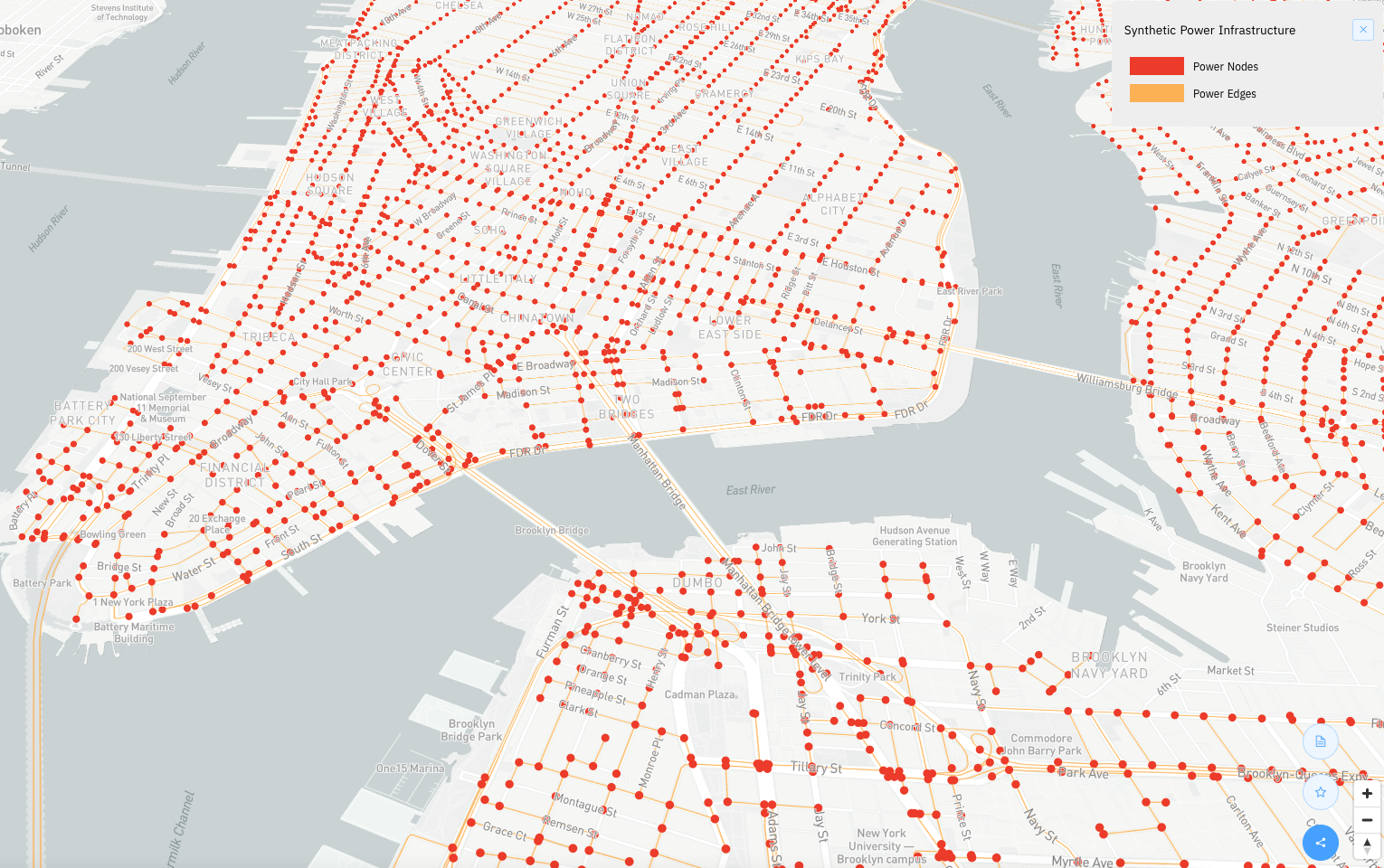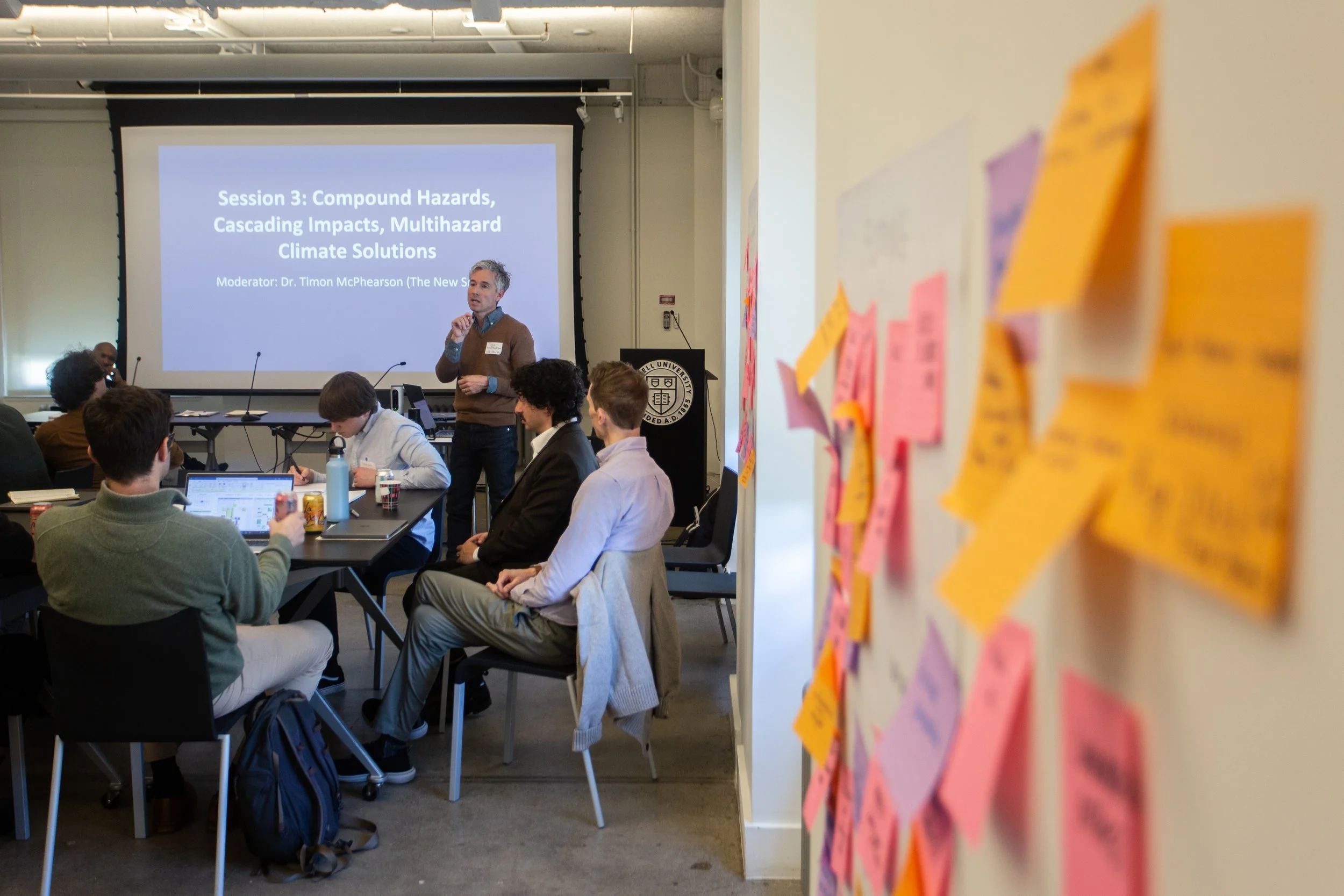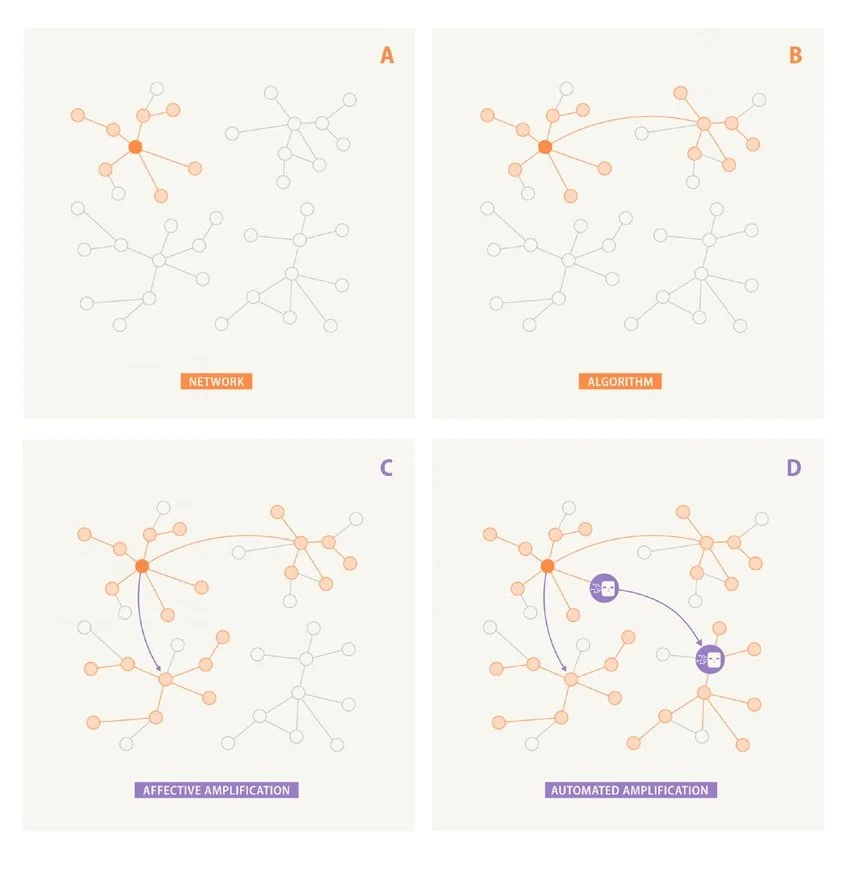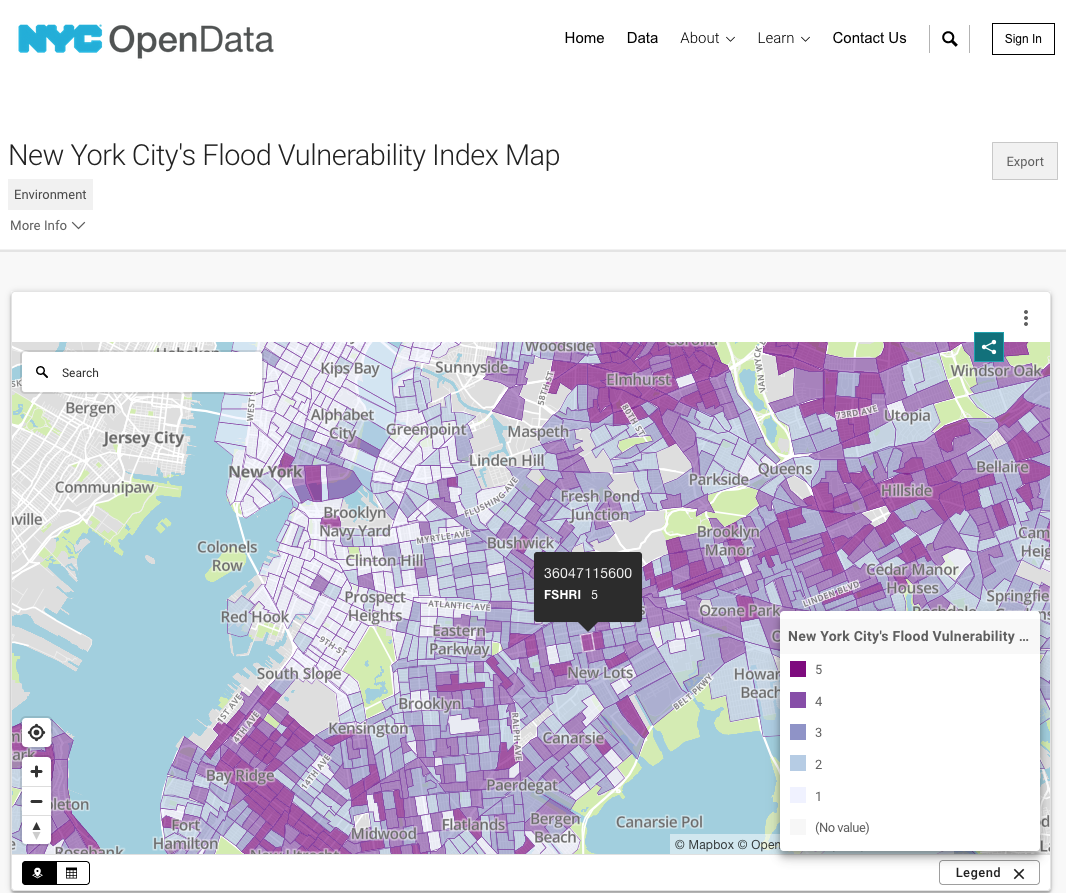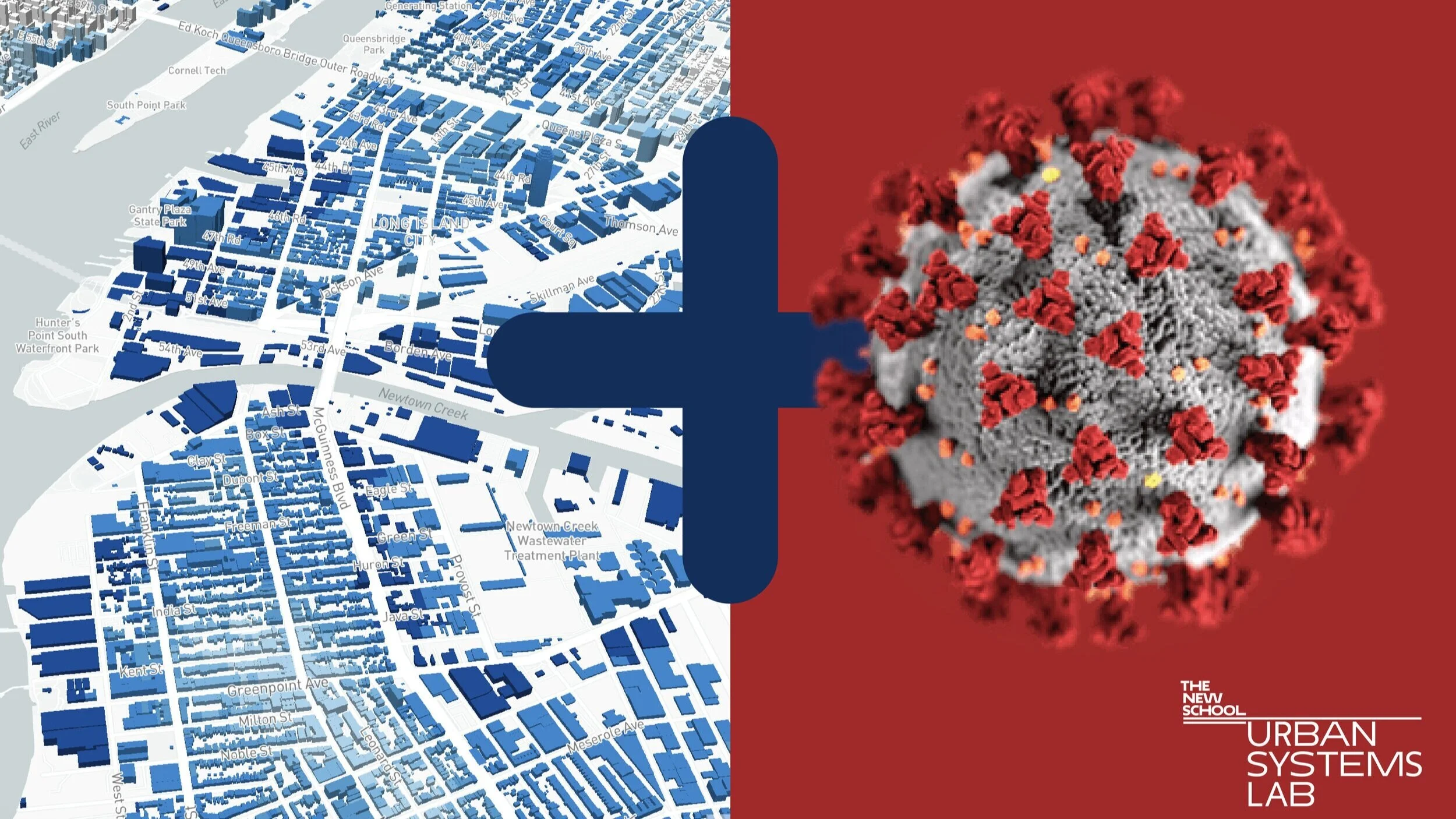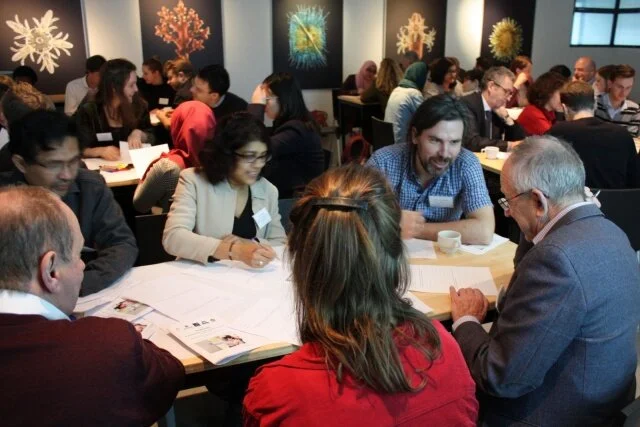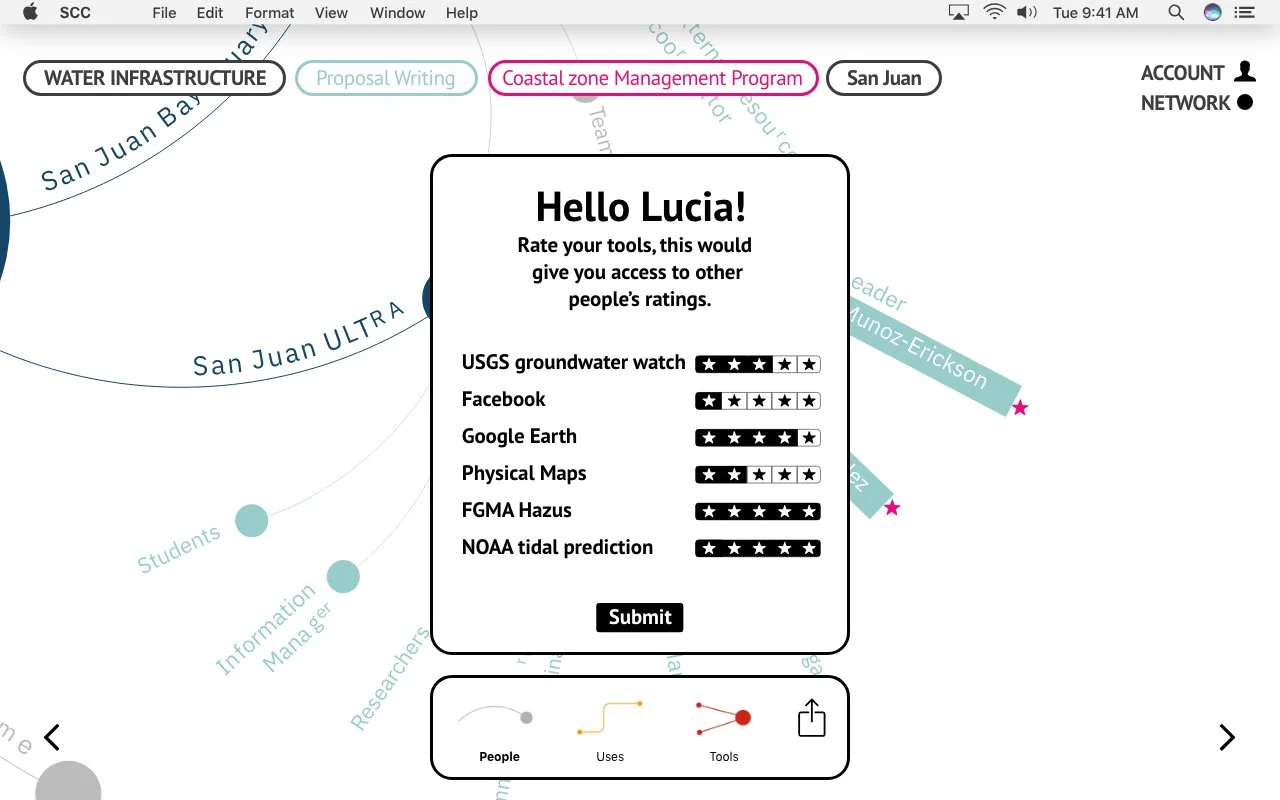Research
Current Initiatives
GoGreenNext is an EU funded Horizon Europe project with the ambition of supporting cities and regions to achieve their climate targets by implementing novel nature-based approaches.
ClimateIQ is an AI driven, multi-hazard risk and vulnerability tool leveraging Machine Learning, Big Data, and multiple climate hazard model environments to reveal high resolution hotspots of overlapping climate risks in cities and urbanized regions.
An initiative to co-develop synthetic infrastructure models for Phoenix, New York City and Atlanta that will simulate critical failure in energy distribution systems and potential cascading impacts on other power, water, and transportation infrastructure during extreme events to optimize solutions, and improve reliability and robustness.
A NSF supported planning effort to develop a model for coproduction of knowledge and solutions to address climate risks in cities, with special attention to environmental justice concerns.
An to accelerate advances in convergent urban systems science capable of providing cities with the knowledge and methods for building integrated SETS resilience strategies to extreme events, supported by cutting-edge modeling, simulation, and visualization of infrastructure systems.
The Environmental Justice of Urban Flood Risk and Green Infrastructure Solutions project aims to better understand the environmental justice impacts of climate change related flooding on minority and low-income communities and assess social equity in green infrastructure planning for reducing urban flood risks.
The Nature-based Solutions for Urban Resilience in the Anthropocene (NATURA) project links networks in Africa, Asia-Pacific, Europe, North and Latin America, and globally to enhance connectivity among the world's scholars and practitioners and improve the prospects for global urban sustainability.
Ocellus XR is a prototype for an Extended and Augmented Reality (XR) mobile app that allow participants to explore 3D visualizations of climate risks and experiment with augmented reality layers (eg. heat maps, social vulnerability, resiliency plans) while also adding a capability to upload ‘climate equity narratives’ (images, text, videos).
The MillionTreesNYC Afforestation Study is a multiyear ecological research project focused on succession, soil-plant interactions, and native-invasive species dynamics in 10 parks across New York City. The purpose is to assess the short- and long-term impacts of the MillionTreesNYC tree-planting strategy on the structure and functions of new forest ecosystems.
We are collaborating with The Nature Conservancy and Columbia University to produce the most comprehensive assessment of New York City’s green roofs to date. Projects such as Aucher Serr’s Envisioning a New Urban Jungle explore the future of New York’s green roofs through data analysis and visualization.
“Is Green Infrastructure a Universal Good?” is a research project to understand how green infrastructure (GI) urban planning in US cities consider issues of equity and environmental and social justice.
The Seeds of Good Anthropocenes project is a collaboration with the Stockholm Resilience Centre funded initially through Future Earth. Our aim is to counterbalance dystopian visions of the future that may be inhibiting the ability to cooperate effectively on problem solving.
AI, People & Planet is a research initiative hosted by the Beijer Institute of Ecological Economics at the Royal Swedish Academy of Sciences, the Princeton Institute for International Regional and Studies at Princeton University, The Urban Systems Lab at The New School and, the Stockholm Resilience Centre at Stockholm University.
Past Initiatives
A research study on future climate change and its potential impacts to inform decision-making by the City of New York and assessment reports by the NYC Panel on Climate Change.
The objective of this NSF RAPID project is to integrate survey, social media, building infrastructure, energy demand and use, and social-demographic data with simulations of potential emerging weather-related extremes to examine interdependent social vulnerability to COVID-19 and weather in New York City (NYC).
The NYC Stormwater Resiliency Study was a joint effort with New York City governmental stakeholders, including the Department of Environmental Protection (DEP), Mayor’s Office of Resiliency (MOR), and Emergency Management (NYCEM). The aim was to improve service reliability and resiliency of stormwater systems by planning and implementing effective and viable green infrastructure strategies across the city through integrated stormwater management.
The aim of URBES is to address significant scientific knowledge gaps in relation to urbanisation processes and the ecosystem services that sustain them. URBES also aims to build the capacity of cities to adapt to climate change and reduce their ecological footprint.
Enabling Green and Blue Infrastructure Potential in Complex Social-Ecological Regions (ENABLE) is a project funded by BiodivERsA that adopts a unique systems approach to addressing complex social-ecological challenges.
In September 2019, the Climate Change, Agriculture and Food Security (CCAFS) and International Fund for Agricultural Development (IFAD) organized a 5-day workshop and learning journey for IFAD staff and partners. The objective of the workshop and learning journey was to introduce attendees to transformational approaches to mainstreaming climate change, nutrition, gender, and youth. The fifth day of the event involved the analyzing and discussion of transformation agendas at the country and project levels under future socio-economic and climate scenarios. Junior Researcher Rohan Bhargava led the development of these scenarios and co-led the one-day workshop.
The Urban Resilience to Extremes Sustainability Research Network (UREx SRN) focuses on integrating social, ecological, and technical systems to devise, analyze, and support urban infrastructure decisions in the face of climatic uncertainty.
Future Earth is an international research platform that helps accelerate transformations to a sustainable world. Its aim is to ensure that scientific understanding is generated in partnership with people throughout society to develop long-term solutions to environmental problems. USL has provided leadership as a member of the core development team, helping to launch the Urban Knowledge-Action Network (UKAN) and the Livable Urban Futures project.
As part of the Natural Capital Project, USL is developing the Urban InVEST valuation model with colleagues from Stanford University, University of Minnesota, the Stockholm Resilience Centre, and the Beijer Institute for Ecological Economics. Urban InVEST integrates spatially explicit biophysical and socio-economic data to allow users to quantify and map the impacts of alternative urban designs on ecosystem services — showing their associated benefits and costs for different communities.
Building Resilient Coastal Cities through Smart and Connected Communities was a project to develop a data visualization and user interface design for web platform. This work involved mapping use cases, tools classification and social networks based on different stakeholders’ data from San Juan, Baltimore and Miami workshops.
The Networked Urban Ecology project is dedicated to linking fragmented habitats that promote biodiversity and provide important services to society. Through a program called Connect the Dots, it merges ecological research with participatory design to build innovative corridors between parkland, street vegetation, green roofs/walls, and other elements throughout the city — with emphasis on places where greenery is lacking.


